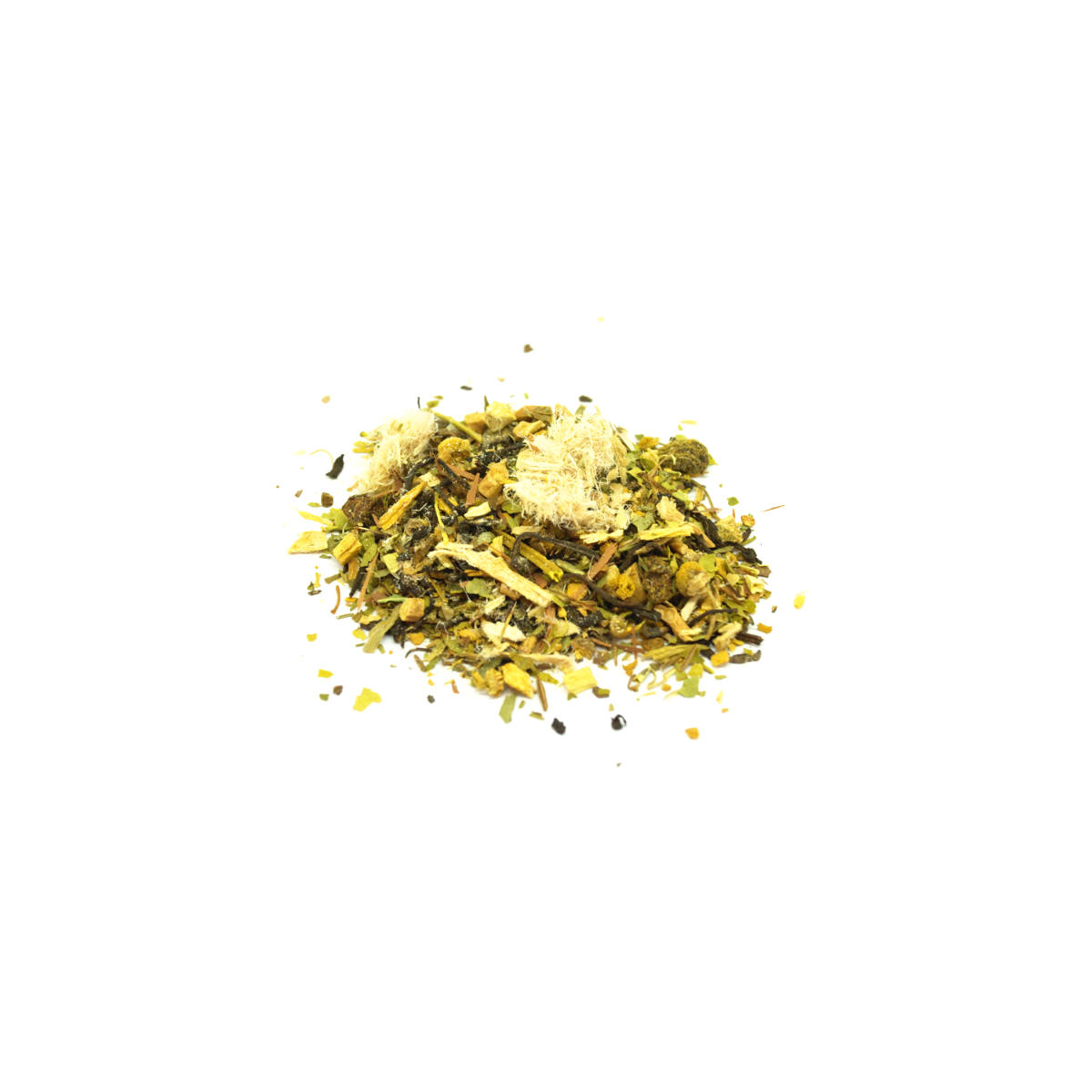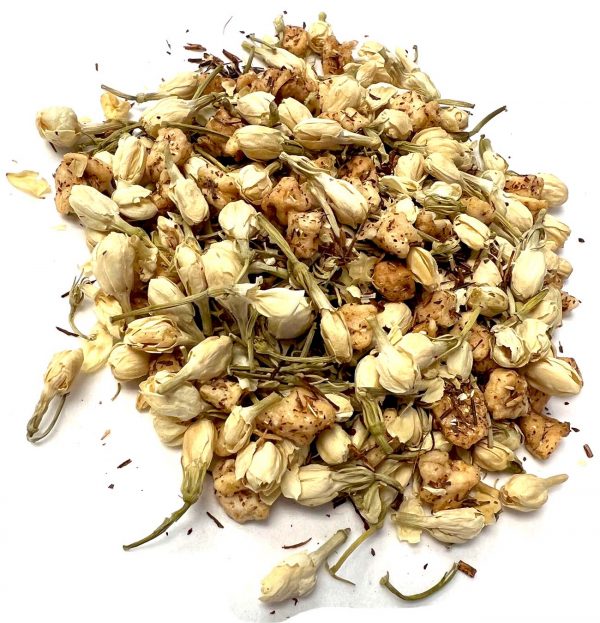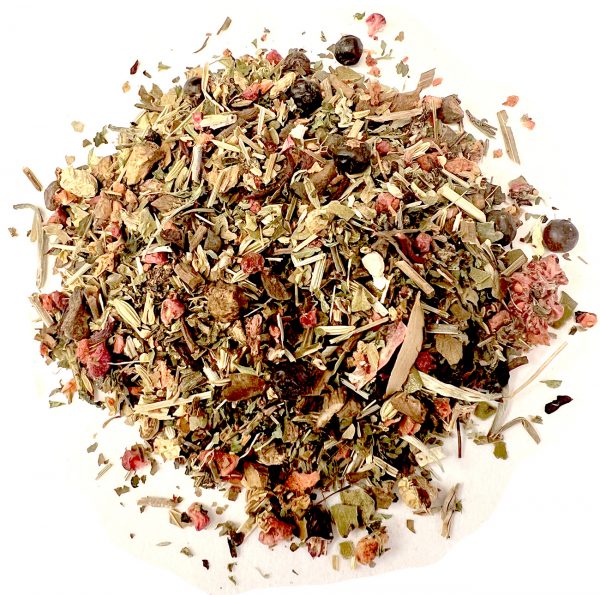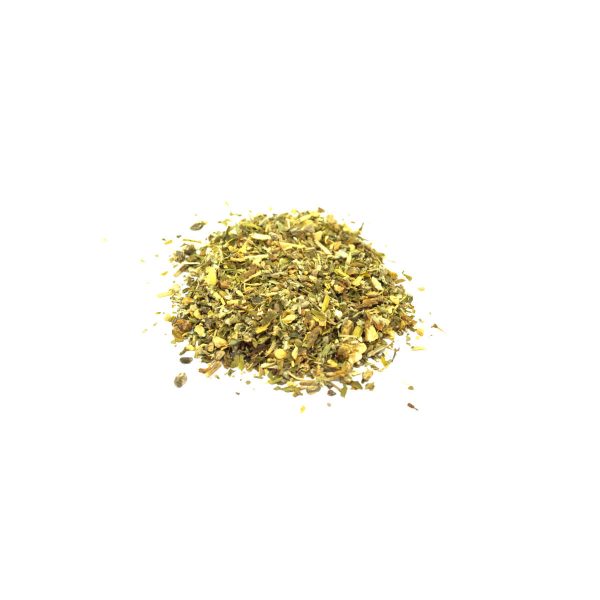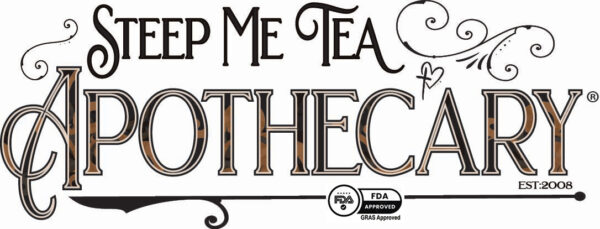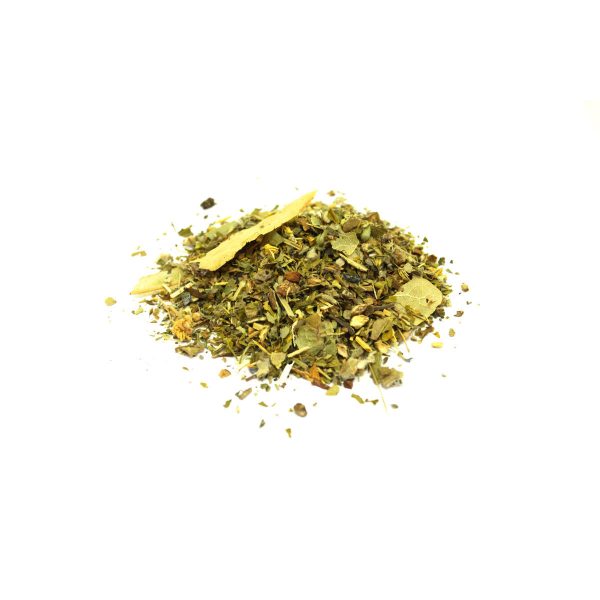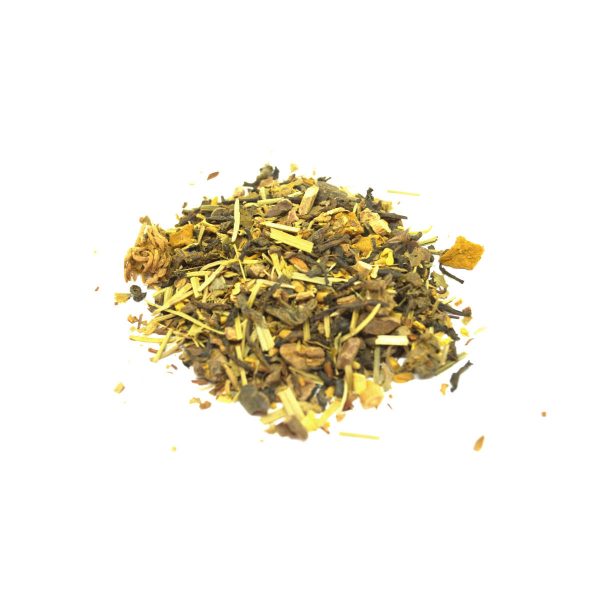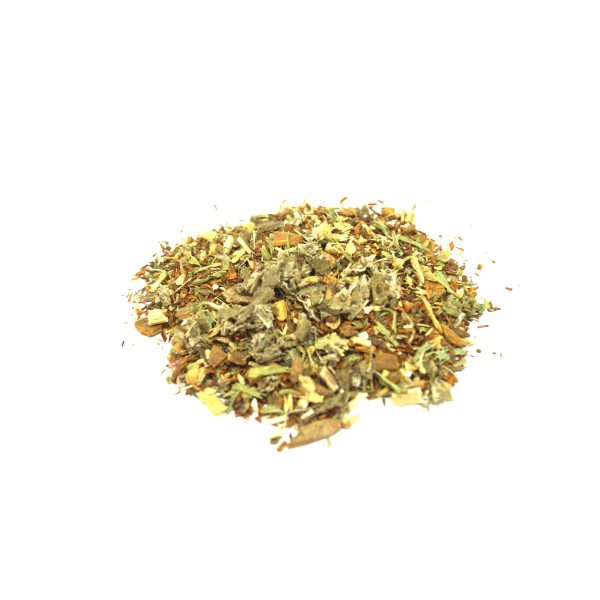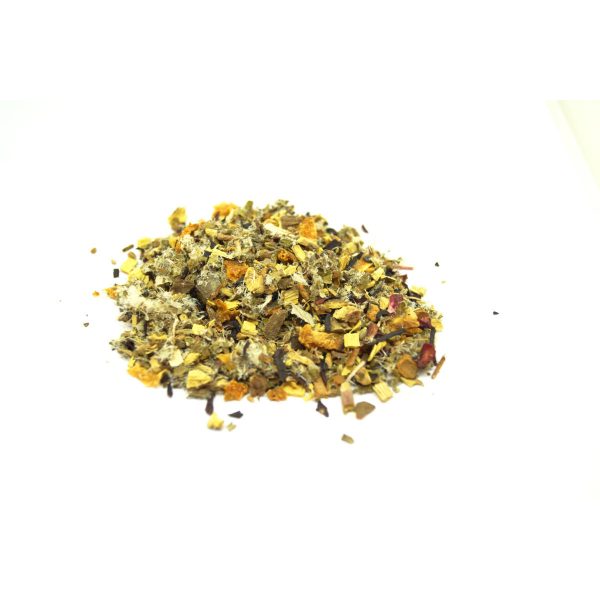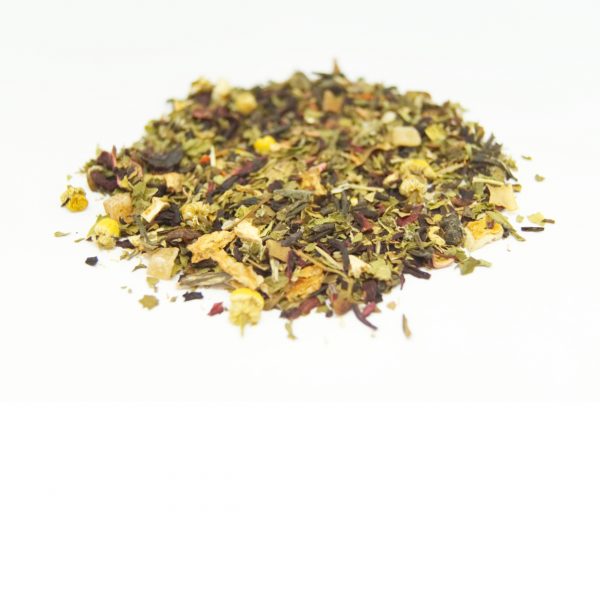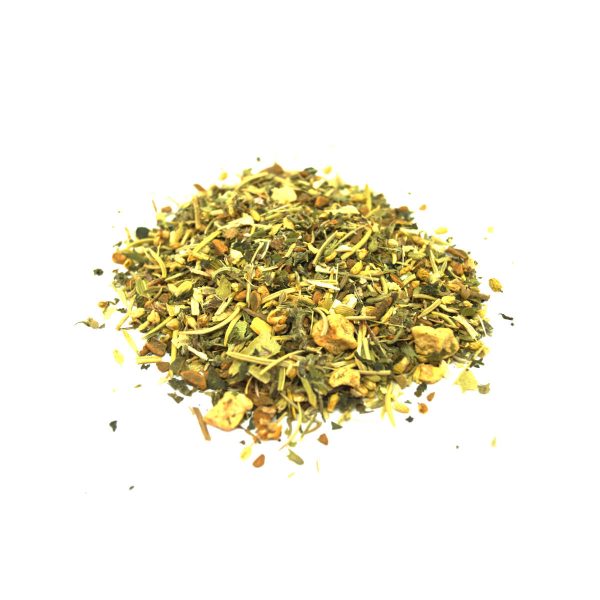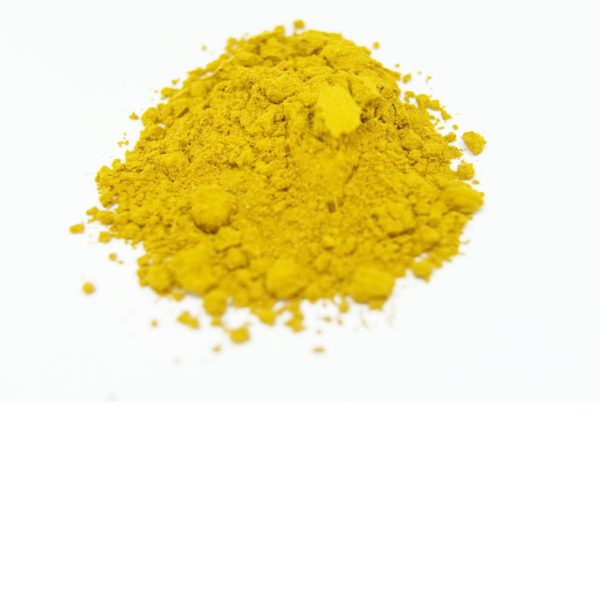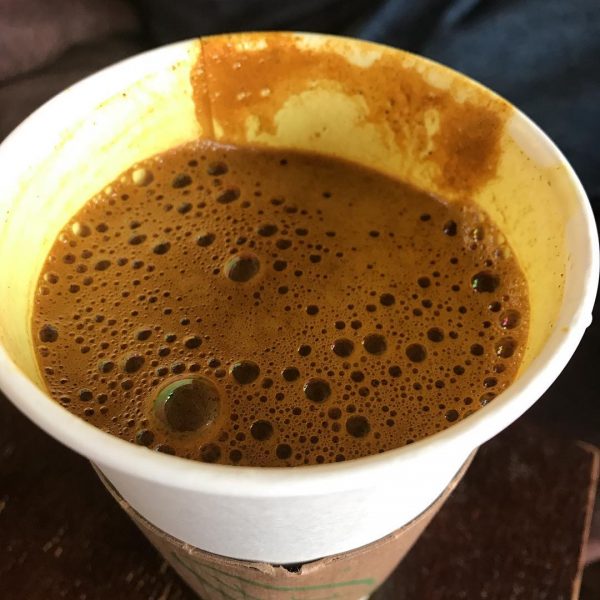With over 400 different kinds of loose tea that will exceed all tea lover’s expectations. You’re sure to find something you will love! All handcrafted by us in North Dakota.
Diverticulitis
From: $15.00
This tea was built to help with the inflamed Diverticula that can occur when they become irritated or infected. This combination of herb will help get your intestinal track back in line with soothing herbs and prebiotic Puerh to start the process to reduce inflammation and pain management.
SKU:
Diverticulitis
Category: Teas
Description
Blender’s Notes Diverticulitis:
Steep Me Self-Help Tea combinations are a wonderful way to get health benefits outside of the standard tea leaf. This tea will help was developed to help with the Diverticula that can get inflamed or infected in the large intestine. Diverticulitis is inflammation of irregular bulging pouches in the wall of the large intestine. Typically, the wall of the large intestine, also called the colon, is smooth. An irregular, bulging pouch in the colon wall is called a diverticulum. Multiple pouches are called diverticula. Diverticula are common, especially after age 50. They are usually found in the lower part of the colon. Most often, they do not cause problems. The presence of diverticula is called diverticulosis. Diverticulosis is not a disease condition. When these pouches become inflamed, the condition is called diverticulitis. Inflammation is an immune system activity that increases blood flow and fluids to a site in the body and delivers disease-fighting cells. Inflammation of diverticula can cause severe pain, fever, nausea, and changes in your stool habits. Mild diverticulitis is usually treated with rest, changes in your diet and antibiotics. Severe diverticulitis usually needs antibiotic treatment in the hospital. Surgery may be needed for severe or frequent diverticulitis. A common symptom of diverticulitis is pain in the area below the chest called the abdomen. Most often, pain is in the lower left abdomen. Pain from diverticulitis is usually sudden and intense. Pain may be mild and gradually worsen, or the intensity of the pain may vary over time. Other signs and symptoms of diverticulitis may include Nausea ~ Fever ~ Tenderness in the abdomen when touched ~ Changes in stool, including sudden diarrhea or constipation. Diverticulitis – Symptoms and causes – Mayo Clinic
The Diverticulitis Tea was built to help with the inflamed Diverticula that can occur when they become irritated or infected. This combination of herbs will help get your intestinal track back in line with soothing herbs and prebiotic Puerh to start the process to reduce inflammation and pain management. We recommend you drink this tea daily until your symptoms are better. The tea will start to coat and sooth from the throat to the stomach and into the intestines, reducing inflammation along the way. With this coating the digestive system will begin to heal and allow the system to digest intake properly. Keeping the system running smooth! We recommend you add Aloe Vera to your cup. Thanks to aloe vera’s anti-inflammatory, laxative, and prebiotic properties, it can help patients with Diverticulitis. We based this blend on Puerh Tea. Puerh Tea is a fermented food, and it can offer a general boost to digestive health. Some of the key microorganisms involved in Pu-erh tea’s fermentation are said to include Aspergillus gloucus, Aspergillus niger, Penicillium, Rhizopus and Saccharomyces. It is loaded with beneficial antioxidants and specifically contains epicatechin, flavonoid, ascorbic acid, and polyphenolic compounds, which can help to protect the body from oxidative damage. Plus, Puerh has antibacterial activities against E. coli., a food-borne bacteria that can cause nasty intestinal infections. Next, we added Turmeric. Turmeric has been shown to have anti-inflammatory, antioxidant, and anti-cancer properties so it may protect the digestive tract, promote the release of certain enzymes, and reduce pain. It helps keep digestive inflammation under control because its active ingredient, curcumin (the pigment that gives turmeric its distinctive yellow color), has anti-inflammatory effects comparable to cortisone, the standard drug prescribed for inflammation. Curcumin also treats pain directly. Ginger stops the production of certain proinflammatory cytokines (IL-1, TNF-alpha), and IL-8) linked to inflammatory diseases. It also helps to speed up stomach emptying, relieve nausea and upset stomach, stimulate the production of stomach acid, and alleviate heartburn and acid reflux. Chamomile has anti-inflammatory effects due to compounds apigenin and chrysin. These compounds have been shown to have anti-inflammatory activity in numerous studies. Chamomile is a natural remedy for acid reflux, inflammatory bowel conditions, H. pylori infection, and stomach ulcers. It may also reduce muscle spasms associated with gastrointestinal symptoms of inflammation (such as those experienced in conjunction with diarrhea). Belladonna was also included because it has been used to treat digestive problems like peptic sores, gastritis, and esophageal reflux. Its anticholinergic effects can lower the amount of acid made by the stomach and relax the smooth muscles in the GI system, which can help relieve symptoms. Garlic because it has prebiotics feed the healthy bacteria in your gut.
Next, we included Echinacea. Echinacea does an excellent job of promoting a healthy balance of gut flora, reducing inflammation, and enhancing immune system function. It may also help alleviate symptoms associated with digestive issues, such as bloating, cramps, and indigestion. Astragalus was also included. Astralagus is known for its ability to improve the immune system and promote overall health, thanks to its elevated levels of antioxidants and adaptogenic properties and is often used to boost vitality and overall well-being. Astragalus strengthens the body’s resistance to disease and increases energy by enhancing cell growth and longevity and stimulating the synthesis of antibodies. It has a tonic effect on the liver, heart, lungs, and kidneys. It lowers blood pressure and increases circulation. It enhances interferon production, preventing viruses from replicating inside the body. Astragalus is known to support digestive health and improve digestion, aiding in the absorption of nutrients. Licorice Root because it guards digestive mucous membranes by increasing the production of mucin, a secretion that protects gut linings against stomach acid and other digestive juices. Mug Wort was included because it can help relax the gastrointestinal tract and bile ducts. This allows for increased bile production, which can help break down food and help it move through the digestive system. Next is Slippery Elm Bark. Slippery Elm Bark can soothe irritated tissue in your digestive system. It is a demulcent that forms a protective film over the mucus lining your guts, thereby protecting irritated tissues that coat both the throat and intestinal lining during digestion. This gel-like coating soothes inflammation and increases mucus secretion to help with gut problems. Slippery elm is prebiotic, high in soluble and insoluble fibers. Medicinal herbs with prebiotic properties, like Slippery Elm, support intestinal health by producing short-chain fatty acids, protecting the function of the gut lining, improving the immune system response against foreign invaders, and controlling inflammation. Goldenseal because it is an anti-inflammatory and antimicrobial astringent and is particularly effective on the digestive system — from the oral mucosa to the intestinal tract. It is helpful for canker sores in the mouth and as a mouth rinse for infected gums. Gotu Kola was included due to its anti-inflammatory and antioxidant active ingredients that play a key role in improving the health of the digestive system, including the intestines and colon.
Pau D’ Arco was added because it is used to promote digestive health and alleviate gastrointestinal issues. It reduces inflammation in the digestive tract and inhibits the growth of harmful bacteria, thereby improving digestive function and providing relief from digestive disorders. Next is Black Cumin. Black Cumin are carminative, which means they can support digestion and decrease digestive problems including gas, bloating, and stomach pain and its active components prevented ulcer development and protected the lining of the stomach against the effects of alcohol. Cumin helps fight Candida overgrowth, thrush and fungal infections in the digestive tract and can help overcome the Helicobacter pylori infections, which are known to contribute to stomach ulcers. Caraway Seed may help reduce intestinal distress on its own or in combination with peppermint oil. This may be because the caraway oil relaxes the cramping muscles in your intestines. Marshmallow Root because it is also demulcent and is recommended for diverticular disease. The roots contain mucilage and counteract excessive stomach acids. Helichrysum, because of its anti-inflammatory properties, makes it a supportive agent for overall internal health and can help ease discomforts like bloating and indigestion and has been used to address liver diseases and gallbladder disorders. And Finally, Schisandra Berry. Schisandra is known for boosting liver function, helping with adrenal functions, and acting like a powerful brain tonic (improving focus, concentration, memory, and mental energy), improving digestion, supporting hormonal balance, and nourishing the skin. Schisandra generates alterations in the basal levels of nitric oxide and cortisol present in blood and saliva and been shown to help modify the response to stress by suppressing the increase of phosphorylated stress-activated protein kinase, which raises inflammation. Its immune-boosting abilities are far-reaching because schisandra helps increase enzyme production, boost antioxidant activity, and improve circulation, digestion, and the ability to remove waste from the body.
NOTE: “This/these claim(s) has/have not been evaluated by the Food and Drug Administration. This product is not intended to diagnose, treat, cure or prevent any disease.”
Features Diverticulitis:
- Leaves can be infused all day! (They will not get bitter)
- Lots of individual flavor based on the ingredients
- All Wildcrafted Herbs
- All Organic where Wildcrafted is not available
- Sweet and Fruity ~ Earthy Taste
- Light Colour Cup of Tea
- Full of natural antioxidants and Low in Tannins and Very Hydrating
- Sample Size ~ 1 oz will make 8-10 16 oz teas
- Sealed Bag ~ 4 oz will make 32-40 16 oz teas
- Iced Tea ~ Always Double the amount of Tea for the same size cup!
- Per Serving ~ 1 tsp per 6 oz of H2O
- Recommend 3 tsp Per Day – resteep leaves 2-3 times
- Caffeine: Low
Ingredients: Steep Me Proprietary Organic and Wildcrafted blend of Dark Tea from Yunnan Province in China aged by Microbial Fermentation with Strawberry Pieces and Hazelnut Essential Oil, Echinacea, Ginger Root, Egyptian Chamomile Flowers, Garlic, Mug Wort, and Turmeric Pieces
Alternatively, try our Digestive Health Phyto~Nutrition Tea OR Colitis Phyto~Nutrition Tea OR IBS Phyto~Nutrition Tea OR Liver Support Micro~Nutrition Capsules OR H.Pylori Phyto~Nutrition Tea
Not Safe for Pregnancy
Not Safe for Breastfeeding
NOTE: These claim(s) have/have not been evaluated by the Food and Drug Administration. The products offered by Steep Me Tea Apothecary -Franchisees – Wholesalers – Influencers or SteepMe.com are not intended to treat, cure, or prevent any illness or disease. If you have or suspect that you have a medical problem, consult with your physician for diagnosis or treatment. All gender specific blends are based on Gender Assigned at Birth. Use herbs as per instructions and always watch for any allergic reactions. You should always carefully read all product packaging and labels. Always consult your physician or health care provider before using any herbal products, especially if you have a medical problem. Steep Me Tea Apothecary and SteepMe.com and/or its proprietors assume no liability for any injury, illness or adverse effects caused by the misuse and/or use of the information or products presented
NOTE: When using Teas, Capsules, Tinctures and Micro-Nutrition to help with your ailment ~ please remember this is a marathon ~ we recommend an investment of time of at least 6 months to see positive change. Any gender specific blends are based on gender assigned at birth.
“Processed in a facility that also processes food containing milk, egg, fish, peanut, shellfish, soy, tree nuts, wheat, and sesame. May contain traces of milk, egg, fish, peanut, shellfish, soy, tree nuts, wheat, and sesame.”
Additional information
| Weight | .4 oz |
|---|---|
| Size | , , |
Benefits
Tisane or Herbal Tea or Self-Help Tea
- Naturally Caffeine Free – unless specified
- Can be a powerful source of hydration
- Many self-help teas are based on multiple herbs giving a natural solution
- Great taste and can be steeped for long period of time
- Great options for kids who are learning to like tea
- Can taste like anything you want it to
When talking about the many types of tea, Tisane (Herbal Infusion) or Herbal Tea or Self-Help Tea is really not tea at all. It is made like a tea and all the same items are used to make it, but it does not contain the Camellia Sinensis Plant (unless stated), but is simply roots, flowers, leaves, and fruits put together is a combination that is made just like a tea. With that being said…the health benefits of a Tisane or Herbal teas are different. They can vary depending on the ingredients and combination of herbs so there are no blanket health benefits – just depends on the ingredients.
For many, the best part of Tisane or Herbal Tea or Self-Help Tea is the fact that it is caffeine free naturally. Of course there are herbs that can be added to change that. The most popular Herbal teas include Chamomile, Peppermint, Spearmint, and any combination of fruit blends or infusions. Our Self-Help Teas are simply supplemental herbal combinations to aid with an occasional ailment specific to what may be happening in your life. The teas are built to work and are not build with any specific flavorings. The blends are tested to the minimum requirements laid out by Steep Me A Cup of Tea. The taste provided is natural to the herbs present in the blend. No flavorings added.
This/these claim(s) has/have not been evaluated by the Food and Drug Administration. The products offered by Steep Me Tea Apothecary -Franchisees – Wholesalers – Influencers or SteepMe.com are not intended to treat, cure, or prevent any illness or disease. If you have or suspect that you have a medical problem, consult with your physician for diagnosis or treatment. Use herbs as per instructions and always watch for any allergic reactions. You should always carefully read all product packaging and labels. Always consult your physician or health care provider before using any herbal products, especially if you have a medical problem. Steep Me Tea Apothecary and SteepMe.com and/or its proprietors assume no liability for any injury, illness or adverse effects caused by the misuse and/or use of the information or products presented.
Related products
Fertility Women’s ~ Phase 1 Tea ~~ GRAS Certified Ingredients
From: $22.00
Select options
This product has multiple variants. The options may be chosen on the product page
Headache
From: $19.00
Looking for a great alternative for the occasional headache or migraine - having a warm tea can sometimes make the difference. The herbs in this blend can help with some of the symptoms.
Select options
This product has multiple variants. The options may be chosen on the product page
Kidney ~ Bladder
From: $16.00
Select options
This product has multiple variants. The options may be chosen on the product page
Third Trimester
From: $13.00
The Steep Me Third Trimester Tea is all about mom and baby well being during the final 3 months of pregnancy. All the wildcrafted herbs present in this blend help keep mom energized, strong immune system and keep the reproductive systems primed and ready for the big day!
Select options
This product has multiple variants. The options may be chosen on the product page
Throat Therapy
From: $15.00
Select options
This product has multiple variants. The options may be chosen on the product page
TranquiliTEA ~ Post Partum Calming & Relaxing
From: $14.00
This blend is a fantastic 4th trimester tea - for after baby is born. This tea is a great add in for breastfeeding because we added special herbs that help with Colic and calm the baby for feeding.
Select options
This product has multiple variants. The options may be chosen on the product page
Tummy Tamer
From: $13.00
Looking for a great option for the occasional tummy ache! A great tea with ginger and peppermint to help with a sour tummy! Pregnancy Safe!!
Select options
This product has multiple variants. The options may be chosen on the product page
VytaliTEE ~ Inflammation & Golden Milk
From: $15.00
A great stir in for inflammation, clarity, pain, energy, arthritis, memory, swelling, nausea and digestion.
Select options
This product has multiple variants. The options may be chosen on the product page

